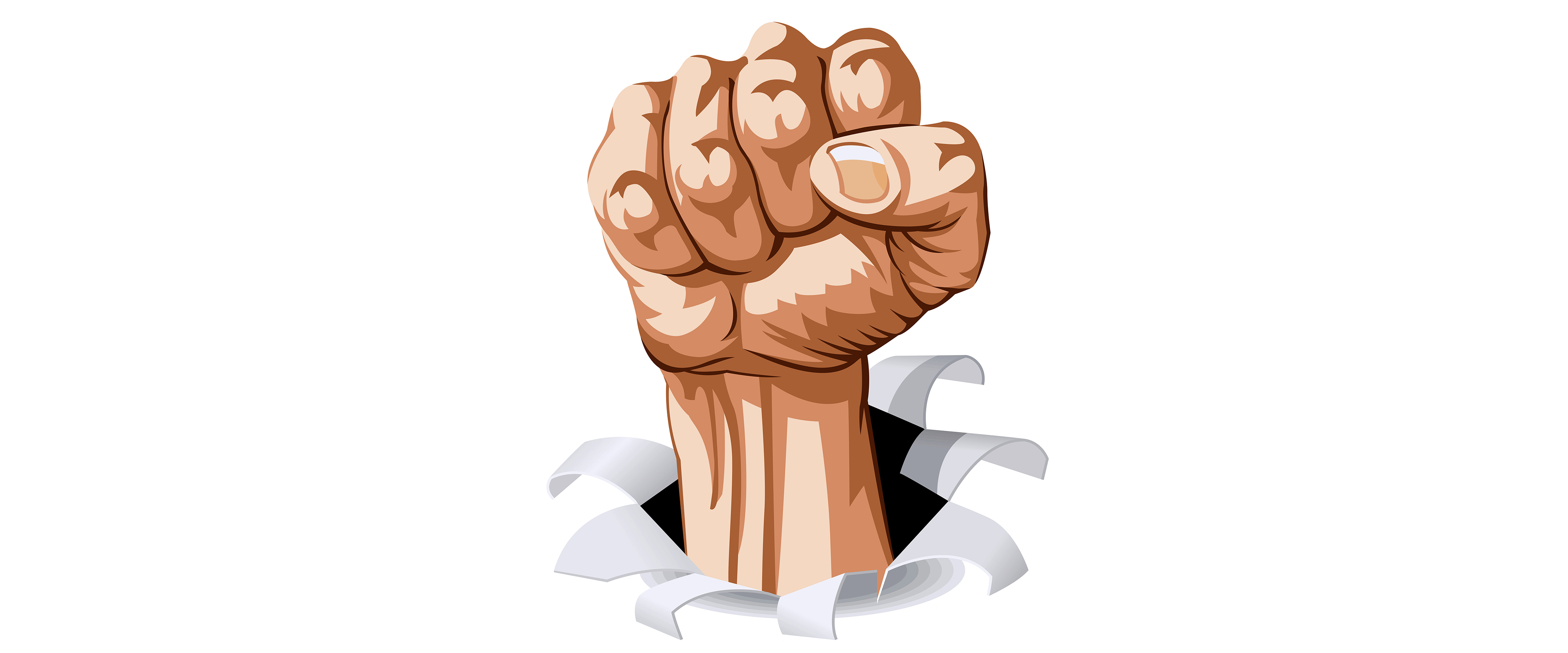The Republicans' health-care disaster will invoke a populist revolt that will destroy them
This isn't going to end well ... for anybody


A free daily email with the biggest news stories of the day – and the best features from TheWeek.com
You are now subscribed
Your newsletter sign-up was successful
With their astonishing vote to pass the American Health Care Act, Republican members of the House of Representatives have brought the GOP, and perhaps the United States itself, one step closer to vindicating Karl Marx.
It was Marx who suggested that history moves dialectically, especially at moments of dramatic change. At such times, tensions within institutions and ideologies rise, eventually building to an outright contradiction that becomes heightened or intensified. Eventually the contradiction snaps, tearing the institution or ideology apart and contributing to the formation of a new one that does a better job of resolving the original tension.
We don't yet know how the AHCA will be changed as it makes its way through the Senate, or even if the narrow Republican majority in the upper house of Congress will manage to pass it in any form. But thanks to Thursday's vote in the House, the general shape of the present moment's central contradiction is now clear, and it doesn't bode well for the future of the Republican Party or, frankly, the country.
The Week
Escape your echo chamber. Get the facts behind the news, plus analysis from multiple perspectives.

Sign up for The Week's Free Newsletters
From our morning news briefing to a weekly Good News Newsletter, get the best of The Week delivered directly to your inbox.
From our morning news briefing to a weekly Good News Newsletter, get the best of The Week delivered directly to your inbox.
This contradiction can be stated in the form of three indisputable facts.
Fact 1: Populism is on the rise across the globe, with growing numbers of voters angry at elite indifference to economic stagnation and the suffering of groups of people who feel ignored by an entrenched political establishment.
Fact 2: In the 2016 election, the GOP nominated and won with a candidate who put this populist message front and center, promising that he would be the voice of these neglected voters and act to make their lives better.
Fact 3: This same party just passed a bill that is guaranteed to significantly hurt millions of these very voters, depriving some of health insurance altogether, making it more expensive for others to acquire or hold onto insurance, and exposing many more to much greater risk of financial disaster should they get sick or suffer injury.
A free daily email with the biggest news stories of the day – and the best features from TheWeek.com
You don’t need to be a communist revolutionary to recognize that this contradiction — one in which the GOP incubates, catalyzes, and unleashes growing waves of populist fury in the very act of pursuing flagrantly anti-populist policies — is unlikely to end well. On the contrary, it is likely to ensure that the anti-establishment passions of the present will only increase. If they become intense enough, there's no telling how much of the political system they may end up tearing down.
Now, consider the role of populism in Europe. It's somewhat different, but the contrast is instructive.
From London to Paris to Warsaw and beyond, the dynamic is similar: A cluster of parties (sometimes two of them; sometimes three or more) presides over the political center, managing the domestic economy and generous welfare programs, meeting with counterparts across the continent to decide how best to implement laws and regulations devised in Brussels. Regardless of whether the party in power leans to the center-left or center-right, the outcome is the same: politics as neoliberal, technocratic management.
It's this pervasive consensus that has been challenged repeatedly in recent years by populists, usually from the anti-liberal right but sometimes from the anti-liberal left. When the challenge comes, it's nearly always from a new or formerly marginal party that takes on the established, centrist parties, seeking to kick them out of power and grab some of it for themselves. The ongoing French election, which will be decided this Sunday, is an especially dramatic example because the two centrist parties (the Republicans and the Socialists) were knocked out in the first round, leaving a head-to-head battle between a pure centrist (Macron) and a pure populist (Le Pen). (In American terms, this would be something like a presidential contest pitting Michael Bloomberg against Donald Trump, with neither candidate running as a Democrat or Republican.)
In the U.S., the populist dynamic is very different. Whereas Democrats (at least since the election of Bill Clinton in 1992) have embraced neoliberalism's characteristic synthesis of democratic socialism and free-market economics, the Republican Party has come to stand for something far more radical: anti-statist libertarianism, which leaves Americans far more exposed than their European counterparts to the creative destruction of markets and the rapaciousness of corporations aggressively seeking maximal profits for their shareholders.
And yet, for a complicated set of reasons, America's populist energies managed to gain political power in 2016 not by challenging the country's two-party establishment from the outside or by taking over the Democratic Party but rather by rising up through the institutional structure of the Republican Party. If this had been a genuine political coup, overthrowing the GOP's libertarian convictions from the inside of the party and replacing them with a commitment to helping the voters who elected Donald Trump to the presidency, the result might have been a coherent populism. But what we got instead was a blatant, self-destructive contradiction: Populist anger propelled Republicans to victory at all levels of government, but once in office they immediately began enacting a libertarian agenda that is bound to stoke even greater anger, and provoke an even greater populist revolt in the not-too-distant future.
In the coming weeks we will learn if the Republican majority in the Senate is willing to follow the House GOP down this perilous path. In the end, it might not make much of a difference. From slashing taxes to deregulation of the financial sector to hacking away at executive branch departments and agencies, the Republican Party appears giddy to enact draconian anti-government policies that will only inflict greater pain and hardship on those Americans who already feel like they're getting screwed.
It isn't likely to end well. Not for those angry Americans. Not for the Republican Party. And not for the rest of us either.
Damon Linker is a senior correspondent at TheWeek.com. He is also a former contributing editor at The New Republic and the author of The Theocons and The Religious Test.
-
 US, Russia restart military dialogue as treaty ends
US, Russia restart military dialogue as treaty endsSpeed Read New START was the last remaining nuclear arms treaty between the countries
-
 Trump reclassifies 50,000 federal jobs to ease firings
Trump reclassifies 50,000 federal jobs to ease firingsSpeed Read The rule strips longstanding job protections from federal workers
-
 What to watch out for at the Winter Olympics
What to watch out for at the Winter OlympicsThe Explainer Family dynasties, Ice agents and unlikely heroes are expected at the tournament
-
 The billionaires’ wealth tax: a catastrophe for California?
The billionaires’ wealth tax: a catastrophe for California?Talking Point Peter Thiel and Larry Page preparing to change state residency
-
 Bari Weiss’ ‘60 Minutes’ scandal is about more than one report
Bari Weiss’ ‘60 Minutes’ scandal is about more than one reportIN THE SPOTLIGHT By blocking an approved segment on a controversial prison holding US deportees in El Salvador, the editor-in-chief of CBS News has become the main story
-
 Has Zohran Mamdani shown the Democrats how to win again?
Has Zohran Mamdani shown the Democrats how to win again?Today’s Big Question New York City mayoral election touted as victory for left-wing populists but moderate centrist wins elsewhere present more complex path for Democratic Party
-
 Millions turn out for anti-Trump ‘No Kings’ rallies
Millions turn out for anti-Trump ‘No Kings’ ralliesSpeed Read An estimated 7 million people participated, 2 million more than at the first ‘No Kings’ protest in June
-
 Ghislaine Maxwell: angling for a Trump pardon
Ghislaine Maxwell: angling for a Trump pardonTalking Point Convicted sex trafficker's testimony could shed new light on president's links to Jeffrey Epstein
-
 The last words and final moments of 40 presidents
The last words and final moments of 40 presidentsThe Explainer Some are eloquent quotes worthy of the holders of the highest office in the nation, and others... aren't
-
 The JFK files: the truth at last?
The JFK files: the truth at last?In The Spotlight More than 64,000 previously classified documents relating the 1963 assassination of John F. Kennedy have been released by the Trump administration
-
 'Seriously, not literally': how should the world take Donald Trump?
'Seriously, not literally': how should the world take Donald Trump?Today's big question White House rhetoric and reality look likely to become increasingly blurred
